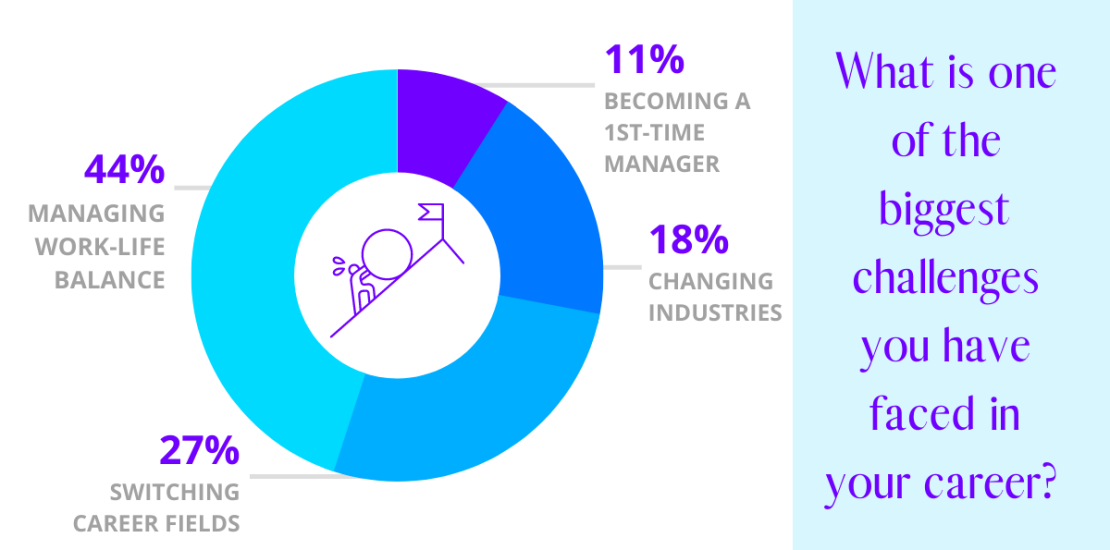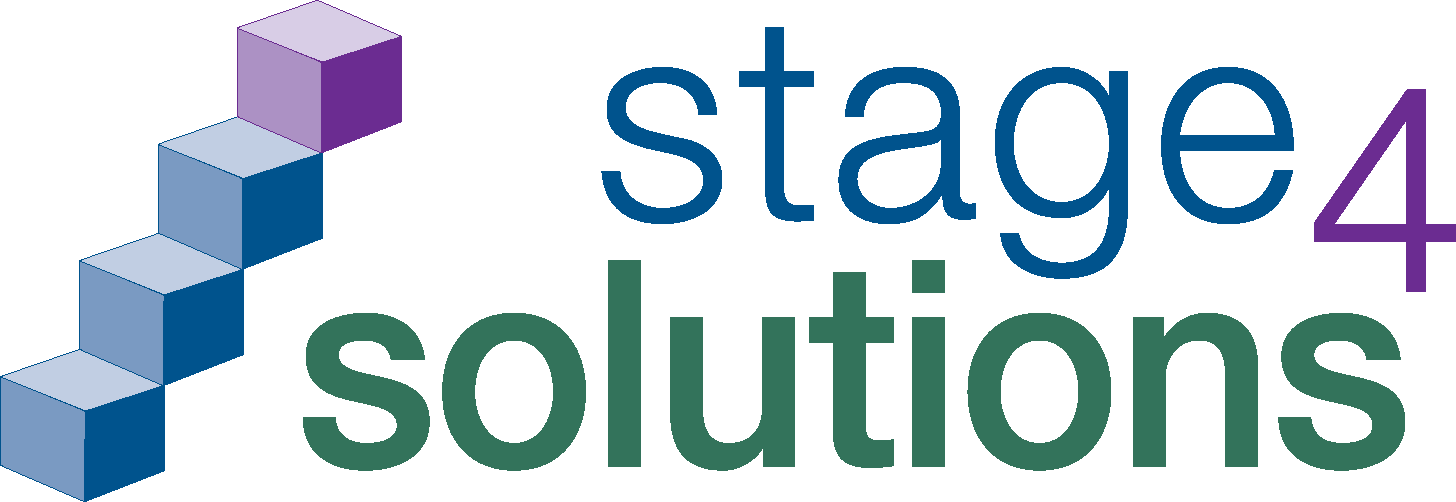Professionals’ Biggest Career Challenge: Managing Work-Life Balance
- May 23, 2023
- Posted by: Stage 4 Solutions
- Category: Blog

In our My Career Path interviews, we always ask leaders about the biggest career challenges they have faced and have heard various perspectives. Challenges are an inevitable part of both personal and professional development, regardless of where we are in our career journeys. While some may believe that these difficulties will eventually dissipate, the truth is that they are constant companions at every stage of our lives. Whether they come from within ourselves or external sources, challenges persist, requiring us to adapt, learn, and grow. Just as walking uphill demands strength and resilience, each obstacle we encounter presents an opportunity to emerge even stronger than before.
We wanted to know our professional network’s biggest career challenges and polled our community for their insights.
What is one of the biggest challenges you have faced in your career? (single answer)
-Managing work-life balance 44%
-Switching career fields 27%
-Changing industries 18%
-Becoming a 1st-time manager 11%
The poll results revealed that 44% of respondents identified managing work-life balance as a significant career challenge. This result is not surprising, given today’s fast-paced work environment with technological advancements that allow work to be done remotely where the lines between work and personal lives are blurred. The American Psychological Association’s research found that 44% of working adults reported feeling chronically stressed due to job pressure, long hours, and inadequate work-life balance. The consequences of poor work-life balance are significant, with studies showing that employees who experience high levels of work-life conflict are more likely to suffer from burnout, experience lower job satisfaction, and have higher rates of absenteeism. On the other hand, employees who experience good work-life balance have been shown to be more productive, have higher job satisfaction, and are more committed to their jobs. Therefore, it is essential for employers to prioritize employee well-being by providing flexible work arrangements, wellness programs, and employee assistance programs to help employees maintain work-life balance. Employers must also create a culture where employees can be open and honest about their needs and concerns and collaboratively discuss solutions. At the same time, employees must try to prioritize their well-being and set boundaries between work and personal life to reduce stress and improve their quality of life.
According to research conducted by the Bureau of Labor Statistics, the average person changes jobs 12 times during their career, with younger generations changing jobs more frequently. While changing jobs, some professionals also change job fields or industries. The poll results showed that 27% of respondents identified switching career fields as a significant career challenge. Switching career fields can be a challenging task, especially when professionals want to pursue a different career path that requires a different skill set. It may require additional education or training to acquire the necessary skills and knowledge to succeed in the new field. Furthermore, it may also require building new professional networks and creating a compelling resume that highlights transferable skills and relevant experiences. It is recommended for professionals who are considering switching career fields to evaluate their motivations, research the new field, and create a plan that outlines the steps they need to take to achieve their career goals. With determination and strategic planning, it is possible to make a successful transition to a new career field.
Changing industries voted by 18% of respondents can be a significant career challenge, as it often requires professionals to adapt to different work environments and network within a new industry. In a survey conducted by Deloitte, 50% of respondents said that they were willing to switch industries to pursue new challenges, and 30% said they would consider switching industries for better pay or benefits. However, changing industries can also come with risks, such as a potential pay cut or loss of job security. It is a useful practice to carefully evaluate the potential benefits and drawbacks of changing industries and create a strategic plan to achieve success.
Another challenge that was identified by the poll was becoming a first-time manager (11%). This challenge is not surprising, as managing a team requires a different skill set than being an individual contributor. According to a study conducted by Gallup, only one in ten people possess the natural talent to manage others effectively. Furthermore, the study also found that companies fail to choose the right candidate for managerial positions 82% of the time, leading to poor team performance and low employee engagement. Becoming a first-time manager requires learning how to delegate tasks, communicate effectively, and motivate and develop team members to achieve their full potential. It is essential for companies to provide training and development programs to help new managers acquire the necessary skills and knowledge to succeed in their roles. Additionally, mentoring and coaching programs can also help first-time managers learn from experienced leaders and avoid common mistakes.
In conclusion, managing work-life balance appears to be the biggest career challenge faced by professionals. It is crucial for employers to recognize this challenge and create policies that support work-life balance, such as flexible work arrangements and mental health resources and for professionals, to prioritize self-care, set boundaries, and communicate with their managers about their workloads. By addressing this challenge, professionals can achieve career success while maintaining a healthy work-life balance.
What is one of the biggest challenges you have faced in your career? Please share with us!

